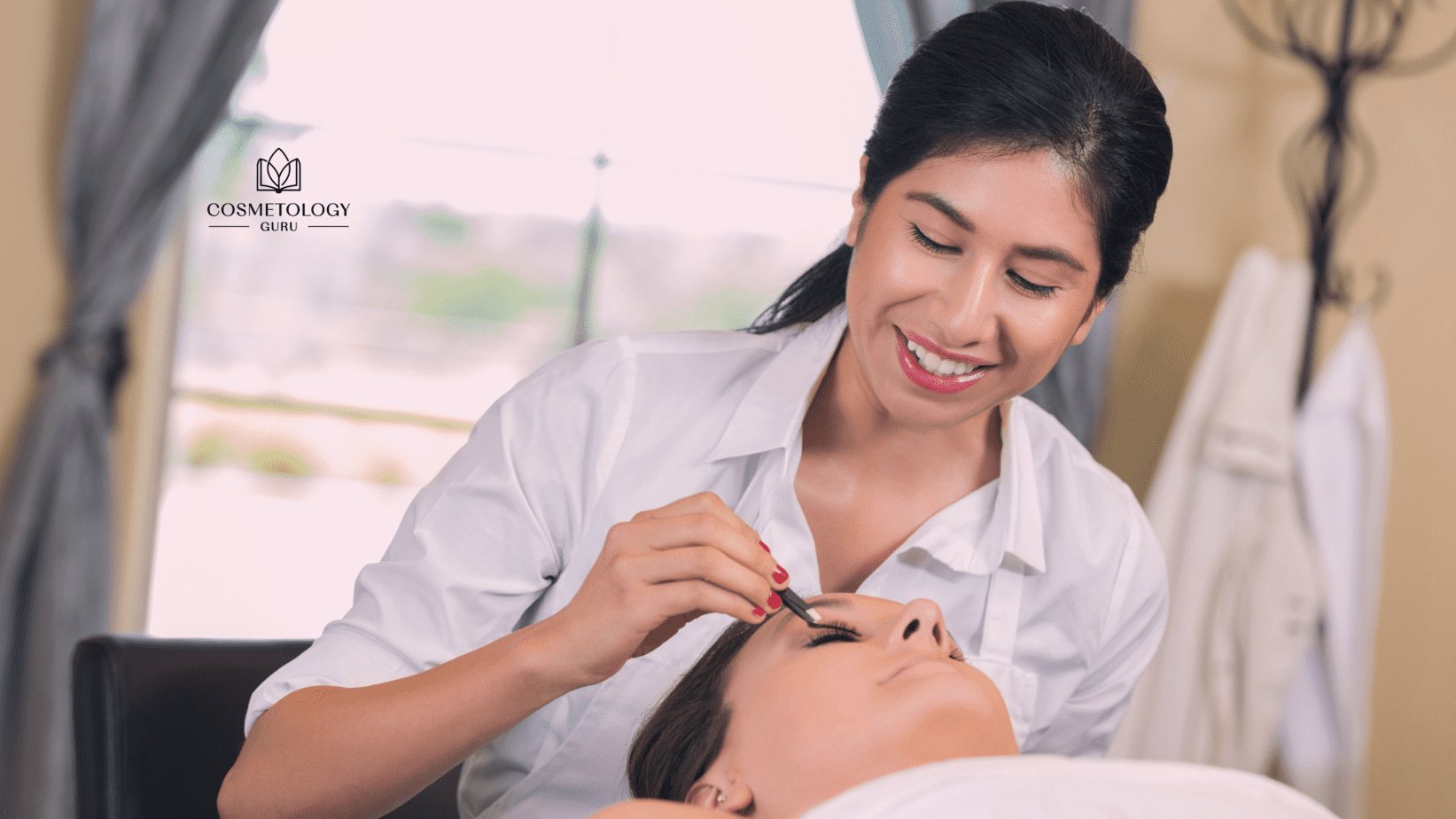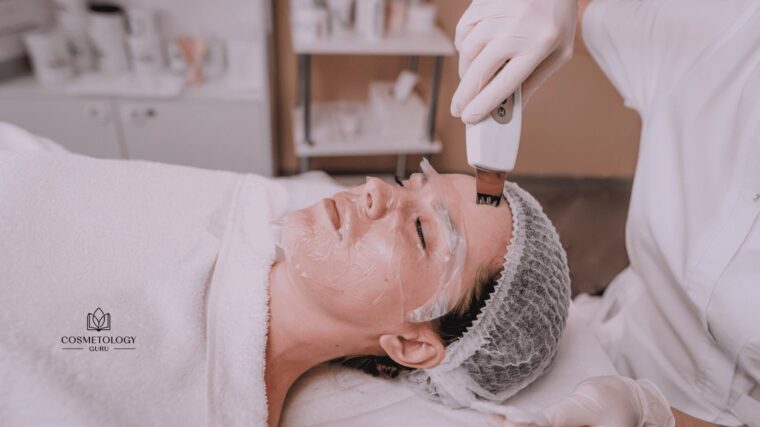If your dream job is providing skincare to patients in a medical setting, you may want to be a paramedical esthetician! This important career involves treating patients’ skin before and after surgery. But how do you become a paramedical esthetician?
In short, you must go to school and obtain your esthetician’s license. Once you’re licensed, you can start looking for a job!
In the rest of this article, we’ll delve into the longer answer, and discuss other aspects of becoming a paramedical esthetician so that you can see if it’s the right career move for you.
What Does a Paramedical Esthetician Do?
Paramedical estheticians care for patients before and after surgery. They typically work at a medical practice with plastic surgeons or dermatologists.
The following are some responsibilities of paramedical estheticians:
- Treating patient’s skin before and after surgery
- Teaching patients makeup techniques to conceal scarring or other blemishes
- Recommending skincare products
- Communicating with medical staff
- Answering patient’s questions about their skin
Do You Have to Go to Medical School to Become a Paramedical Esthetician?
No, you don’t need to attend medical school in order to become a paramedical esthetician.
Paramedical estheticians complete their education at a cosmetology or an esthetician training school. Here, they learn all about skincare.
In their careers, they work with physicians and apply their knowledge to help patients. Though they work alongside doctors, they are not doctors themselves.
Can You Be a Paramedical Esthetician With an Esthetician License?
Yes, you can be a paramedical esthetician with an esthetician license. Job and licensing requirements for paramedical estheticians are the same as for any other esthetician.
We’ll talk more about what it takes to obtain your esthetician license below.
How Do You Become a Paramedical Esthetician?
To become a paramedical esthetician, you must first find a cosmetology school in your area that you’d like to go to and take a cosmetology or esthetics course.
In order to attend a beauty school, you will likely need to be at least sixteen to eighteen years old, depending on your state’s laws.
You will also need to have a high school diploma or GED if you live in one of the following states:
- Alaska
- Florida
- Hawaii
- Illinois
- Iowa
- Kansas
- Kentucky
- Minnesota
- Mississippi
- Montana
- Nebraska
- New Hampshire
- New Jersey
- North Dakota
- Rhode Island
- South Dakota
- Texas
- Vermont
- West Virginia
- Wisconsin
Other states commonly require 10th or 8th-grade education. Some don’t have any minimum education requirements at all.
If your state isn’t listed above, you can check your state requirements here.
How long is schooling?
The time it takes to complete your schooling varies depending on your state and your personal life. All states require you to have a certain number of educational hours before you can obtain your license. This number varies.
However, some states also require a period of time in which you must be attending school. In this case, you may complete the required hours, but still have to attend school until the end of that period in order to qualify.
If your state regulations allow it and you have the time, some people complete their education in just months.
Almost done with beauty school? Take our free esthetician practice test to see if you’re ready for the exam!
And if you want further education relating to the specific category of paramedical esthetics, there are courses available! Here’s a brief video from the Concepts Institute of Advanced Esthetics about their paramedical esthetics program:

Are there alternatives to beauty school?
Yes! The following states allow you to serve an apprenticeship instead of going to school:
- Alabama
- Alaska
- California
- Delaware
- District of Columbia
- Georgia
- Hawaii
- Idaho
- Kentucky
- Maine
- Maryland
- Michigan
- Missouri
- New Hampshire
- Oklahoma
- Pennsylvania
- Utah
- Vermont
- Virginia
- Washington
- Wisconsin
If you choose this route, you can complete your educational hours at a licensed workplace.
Colorado doesn’t require an esthetician license, but you will need to have a cosmetology license to become an esthetician in Colorado.
Once your educational hours are complete, you’ll be ready for testing to obtain your esthetician license. Then you can start looking for work!
What’s the Difference Between a Paramedical Esthetician and a Medical Esthetician?

The prefix para- comes from the Greek word para, which means beside or alongside. The word “medical” comes from the Late Latin word medicalis, which means of a physician. And the word “medic” comes from the Latin word medicus, which simply means physician.
So what’s the difference? The word paramedical means, at its root, “alongside of” a physician, while the word medical means “of,” or under, a physician.
A nurse, for example, works under a doctor or a physician, even though they work with them towards the same goal of getting the patient better. A paramedic generally works alongside doctors because they are more involved in emergency situations.
Even though both are in the medical field and have similar training, the setting in which they work is the main difference that determines their duties. The same can be said for paramedical vs medical estheticians. Both work in medical settings and with healthcare professionals.
The difference is that paramedical estheticians focus primarily on skincare needs that arise from more serious situations – like trauma or major plastic surgery. Medical estheticians can do the same, but they also provide more minor treatments and even administrative duties that help out a physician or primary care doctor.
Even though there is a very small technical difference, there is a lot of overlap in the duties. A paramedical esthetician may call themselves a medical esthetician and vice versa. They are ultimately the same profession, and the words are often used interchangeably.
Paramedical Esthetician Salary
Skincare specialists earn an average salary of $38,060. The Bureau of Labor Statistics includes paramedical estheticians in this number.
However, while the average skincare specialist makes $18.30 per hour, those who work in the offices of physicians earn an average of $20.62 per hour.
This means that most paramedical estheticians make much more than the average skincare specialist.
As always, location can play a big role in how much you make. Certain urban areas and big cities pay significantly more, so that’s worth considering when trying to gauge how much you’ll make.
Is Becoming a Paramedical Esthetician Worth It?
If you love the idea of working in a medical setting providing skincare for patients, becoming a paramedical esthetician may be worth it for you.
But, of course, there are drawbacks to every career. Let’s take a look at the pros and cons of becoming a paramedical esthetician.
Pros of becoming a paramedical esthetician
- Work in a medical setting with minimal schooling.
- Help patients feel more secure after difficult procedures
- Meet many different kinds of people
- Earn a better living than other types of estheticians
Cons of becoming a paramedical esthetician
- Long hours
- Difficult clients
- Less freedom in client care as you’re working under a physician’s orders
- Must learn to communicate with medical staff effectively
- Clients may be more sensitive due to medical issues
No doubt, it takes a lot of work to be a paramedical esthetician. The job isn’t for everyone—some people may be happier in a more typical setting, such as a spa or salon.
Ultimately, it’s up to you to decide: is being a paramedical esthetician right for you?
Related Reads
How Much Does Esthetician School Cost?
Top 5 Highest Paying Esthetician Jobs In 2022
6 Types Of Esthetician Specialist In The U.S.: A Comprehensive Guide


